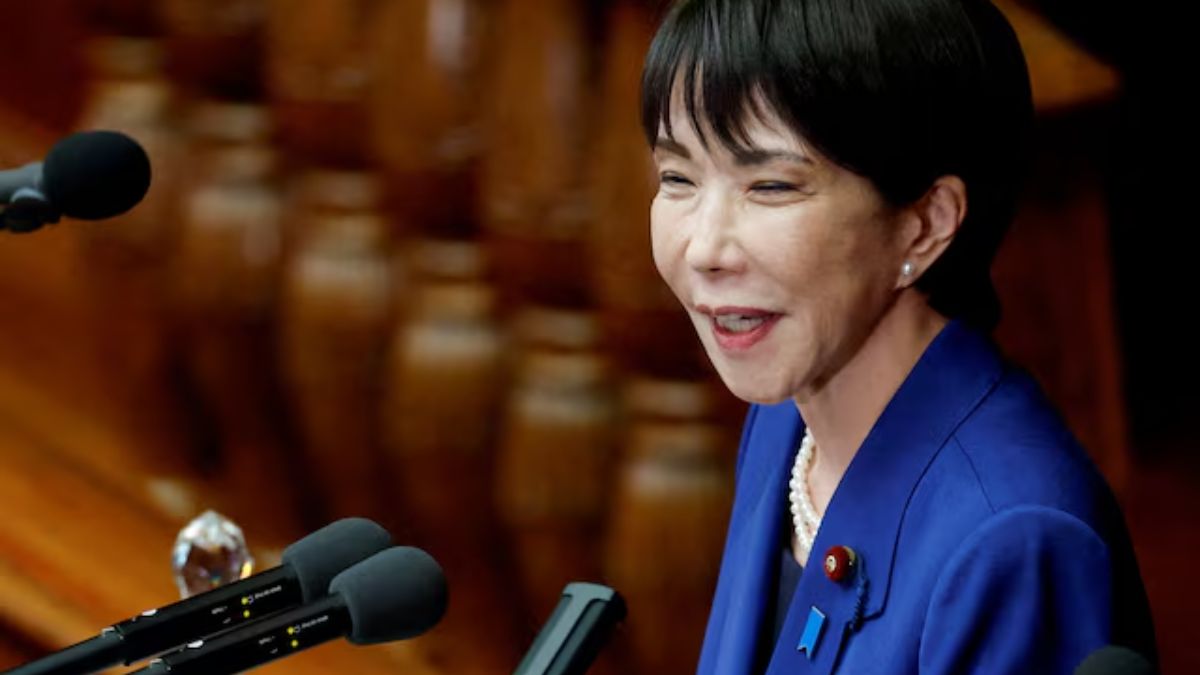“Work, work, work, and work like workhorses,” she said in her first speech on October 5 after defeating four male rivals to win the Liberal Democratic Party (LDP) leadership and the title of prime minister in Japan.
Sanae Takaichi declared that she would abandon the phrase ‘work-life balance’, and she was not joking.
Known for following a strong work ethic, Japan’s prime minister has given into the overwork culture, not merely through remarks, but this time with her actions as well.
Takaichi has drawn fresh attention to herself, particularly in the context of work. Her 3 am arrival for a meeting has sparked a work-life debate, drawing scrutiny over her relentless work schedule.
So, what exactly happened? What do her opponents say? What is Japan’s unforgiving work culture, known as karoshi?
Let’s understand.
Japan PM’s 3 am start sparks ‘work like workhorses’ concern
Japan’s first female prime minister, Sanae Takaichi, has stood by her words to ‘work like a horse ’ since the day she assumed office in October.
Last Friday, Takaichi arrived at her office at 3 am to prepare for her first parliamentary budget session. The budget session was scheduled to convene at 9 am.
An official told Fuji News Network, “My jaw dropped when I heard it was 3 am.” According to reports, the meeting lasted nearly three hours and involved several staff members.
It was then that criticism started pouring in, not just regarding the possible toll on her health, but also how she had dragged officials at an odd time.
Her unexpected early arrival was also raised during the Budget committee in parliament.
When inquired about the same, Takaichi was quick to defend herself. She said that her home fax machine, an old one, had malfunctioned, and she could not avoid going to the official residence, as the budget session was tabled for early 9 am.
Sixty-four-year-old Takaichi did apologise, saying, “I caused trouble for the secretaries, security guards, and drivers who helped.”
“A crazy decision to force staff at such hours”
The opposition party leader and former Japanese Prime Minister Yoshihiko Noda attempted to grill Takaichi by calling her decision “crazy."
He even blasted the prime minister for having such an attitude towards the staff members. He said, “No leader should force staff to work at such hours. Everyone is asleep at that time. It’s a sad attitude for a national leader."
However, the argument in the parliament did not stop there; in fact, another member, Takahiro Kuroiwa, of the Constitutional Democratic Party of Japan - the main opposition party, had a question prepared for the PM.
Kuroiwa asked, “I heard the prime minister entered the official residence at 3 am., which affects many people. From a crisis management perspective, wouldn’t it be better to move into the official building as soon as possible?"
Takaichi responded, saying, “I need to attend the G20 Summit in South Africa, adding that “Once these schedules are finalised, I will move as soon as possible."
Many called it a lack of consideration for others.
Karoshi: Understanding Japan’s unforgiving working culture
Japan has had horrifying work culture experiences in the past. People have lost their lives after being at risk of ‘karoshi’, meaning ‘death by overwork’.
Twenty-four-year-old Matsuri Takahashi died by suicide on December 25, 2015. She jumped from her company dormitory. Takahashi was an employee at Dentsu Inc, Japan’s largest advertising agency.
Before her death, she posted several disturbing messages on her social media account, expressing her helplessness.
“It’s 4 am. My body’s trembling. I’m going to die. I’m so tired,” and “I’m physically and emotionally shattered”, she posted.
After her death, Tokyo’s Labour Standards Bureau found that Takahashi was consistently working over 100 hours of overtime in a single month, on her superiors’ instruction.
Her story triggered nationwide outrage, leading to the passage of the 2018 Workstyle Reform Act. It barred employees from working more than 45 hours of overtime in a single month.
First documented case of ‘Karoshi’ in Japan
That’s not all, a 29-year-old man died in 1969 due to a stroke during his work hours in the delivery department of Japan’s largest newspaper.
The result of his tragic death was gruelling work conditions.
His untimely death became the first documented case of “karoshi” – a Japanese word meaning “death by overwork.”
However, it was far from being the last case.
With inputs from agencies
)